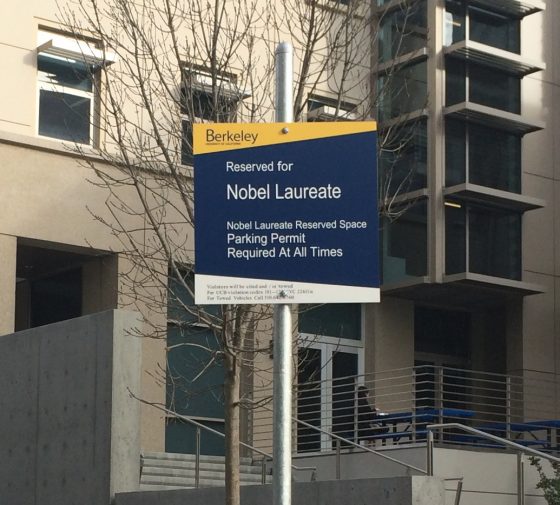
UC Berkeley
The nine University of California campuses, featuring top programs in sunny locales, attract many out-of-state students. UCLA, for example, processed 113,761 applications last fall — the highest in the nation – with 22,822 from out-of-state.
Those numbers make admission very competitive, but out-of-state students can take heart: they are admitted at a higher rate (22% of out-of state applicants to UCLA were admitted in 2018, versus 12% of in-state), because fewer will ultimately enroll (24% of admitted out-of-state students to UCLA enrolled, versus 50% of in-state). The nonresident tuition, however, can sting – it’s an additional $28,992 per year.
Hoping to offset this, nonresidents frequently explore possible routes to resident tuition. In truth, there are many restrictions for out-of-state students seeking to qualify.
“Obtaining California residency for the purposes of tuition and fees is extremely difficult for undergraduates with nonresident parents (this includes transfer students from community colleges and other postsecondary institutions within California).
Virtually all nonresident undergraduates with nonresident parents remain nonresidents for the duration of their undergraduate career at UC.”
Still, many out-of-state students will continue their quest to qualify. The following provides some guidance for their typical questions.
Can I qualify for residency if I get a California driver’s license and register to vote, and/or my parents buy property in California?
No.
“Residence can be established only by the union of physical presence and intent. Physical presence alone is insufficient; intent alone is insufficient.”
This means that to establish residency, the student and family must relocate to California (physical presence), and establish legal ties in California while severing ties to their former place of residence (intent).
Furthermore, you must be continuously physically present in California for more than one year (366 days) immediately prior to the term start date. Also note that any reclassification of residency is not retroactive.
Aren’t there any exceptions?
Yes.
The list of exceptions, however, is very specific, such as:
- a nonresident student who is the dependent of a California resident parent
- a student member of the U.S. Armed Forces on active duty in California
- an amateur student athlete training at a U.S. Olympic Training Center in California
What if I am financially independent and I move to California and work there for 366 days before starting school — will I qualify?
Maybe.
In addition to establishing residency in California for 366 days prior to the start of the term, a self-supporting student must also “be able to verify financial independence for the two full years immediately preceding the term” they plan to enroll.
“This requirement makes it extremely difficult for most undergraduates who are not financially dependent on a California-resident parent to qualify for classification as a California resident.”
My neighbor’s son attends a California State University and he doesn’t pay out-of-state tuition. How can I do that at a UC?
The circumstances may be different, so you will need more information.
“Residency for purposes of UC tuition is specific to the University of California and separate from the California Community Colleges and California State University systems and may be different from residency for purposes of UC admission and other state rules or regulations governing residency for other purposes.”
My aunt lives in California. Can I just use her address to show that I am a resident?
No.
If a student conceals facts or makes untruthful statements regarding their residency, they are subject to penalty of perjury.
“A student must sign the Statement of Legal Residence even if the Student has yet to reach the age of majority; pursuant to State of California law, a Minor may be prosecuted for perjury.”
What about the Nonresident Supplemental Tuition (NRST) exempt classification — how can I qualify?
You may qualify if you meet specific criteria, such as:
- you attended a California high school, adult school, or community college for at least three years, and meet additional requirements (see Appendix D: AB 540 Requirements)
- you are the dependent of a California resident on active duty elsewhere, or a nonresident on active duty in California (see Appendix B: Veteran — Military Provisions).
Who is the right person to contact for accurate information?
“Inquiries regarding UC residency for purposes of tuition should be directed to a campus Residence Deputy in the campus Registrar’s Office or to a Residency Analyst in the Office of the General Counsel of The Regents of the University of California, Office of the President.”
The information provided above is applicable only to nonresident U.S. citizens; and is not comprehensive or all-inclusive. Find out more about residency requirements on the UC website at the Board of Regents Policy 3105 on Residency and Payment or Waiver of Tuition, Non-Resident Supplemental Tuition and Mandatory Systemwide Fees; the UC Residence Policy and Guidelines 2019/2020; and Understanding Residency.
 UT at Austin’s Office of Admissions began admitting students to its Class of 2023 on Friday evening December 7 when a few thousand fall 2019 freshman applicants received an email asking them to visit their MyStatus page for an update.
UT at Austin’s Office of Admissions began admitting students to its Class of 2023 on Friday evening December 7 when a few thousand fall 2019 freshman applicants received an email asking them to visit their MyStatus page for an update.




